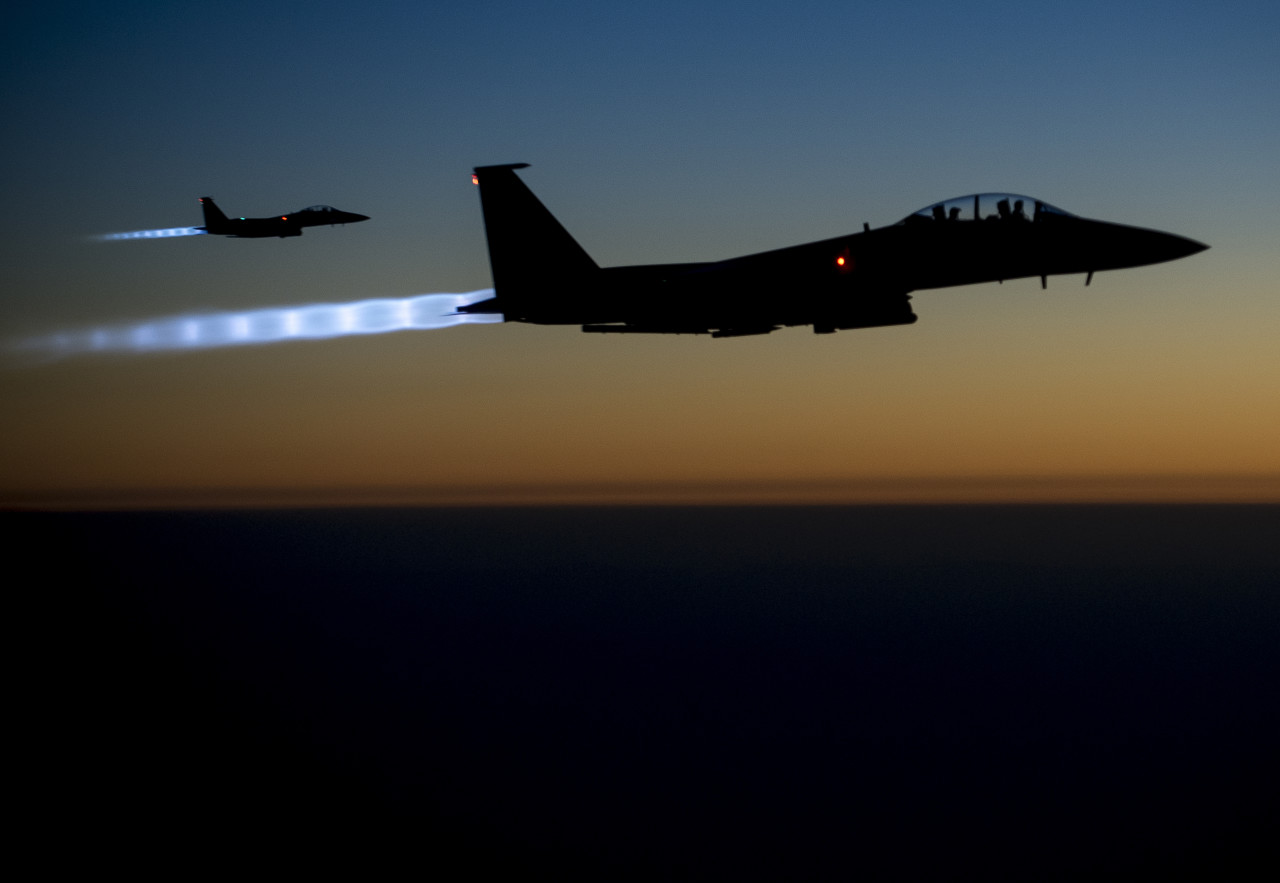Advertisement
War Powers And A Constitutional Crisis
War powers, the White House and the Islamic State. Some see Presidential overreach in the US military push right now. We’ll take it up.

When Thomas Jefferson went after the Barbary pirates, he at least asked for a declaration of war from Congress. With Barack Obama going after ISIS, never mind that. He just cites an “authority” going back to 2001 against Al Qaeda. ISIS and Al Qaeda are not the same. They’re rivals. Should the president formally go to Congress for a declaration of war on the Islamic State? Some hot voices are saying yes, it’s right there in the Constitution. And others no, we’re past that. Are we? Should we be? When we’re talking a campaign of years? This hour, On Point: ISIS, the President and War Powers.
- Tom Ashbrook
Guests
Bruce Ackerman, professor of law and political science at Yale University. Author of "We the People," "The Decline and Fall of the American Republic" and "The Failure of the Founding Fathers." (@backermanyale)
Stephen Griffin, professor of constitutional law at the Tulane University Law School. Author of "Long Wars and the Constitution" and "American Constitutionalism: From Theory to Politics."
Nancy Cordes, Congressional correspondent for CBS News. (@nancycordes)
From Tom's Reading List
New York Times: Obama’s Betrayal of the Constitution — "Mr. Obama may rightly be frustrated by gridlock in Washington, but his assault on the rule of law is a devastating setback for our constitutional order. His refusal even to ask the Justice Department to provide a formal legal pretext for the war on ISIS is astonishing."
TIME: Obama’s Breathtaking Expansion of a President’s Power To Make War — "Future historians will ask why George W. Bush sought and received express congressional authorization for his wars (against al Qaeda and Iraq) and his successor did not. They will puzzle over how Barack Obama the prudent war-powers constitutionalist transformed into a matchless war-powers unilateralist. And they will wonder why he claimed to “welcome congressional support” for his new military initiative against the Islamic State but did not insist on it in order to ensure clear political and legal legitimacy for the tough battle that promised to consume his last two years in office and define his presidency."
Associated Press: Can Obama wage war without consent of Congress? -- "On the cusp of intensified airstrikes in Iraq and Syria, President Barack Obama is using the legal grounding of the congressional authorizations President George W. Bush relied on more than a decade ago to go to war. But Obama has made no effort to ask Congress to explicitly authorize his own conflict."
This program aired on October 6, 2014.